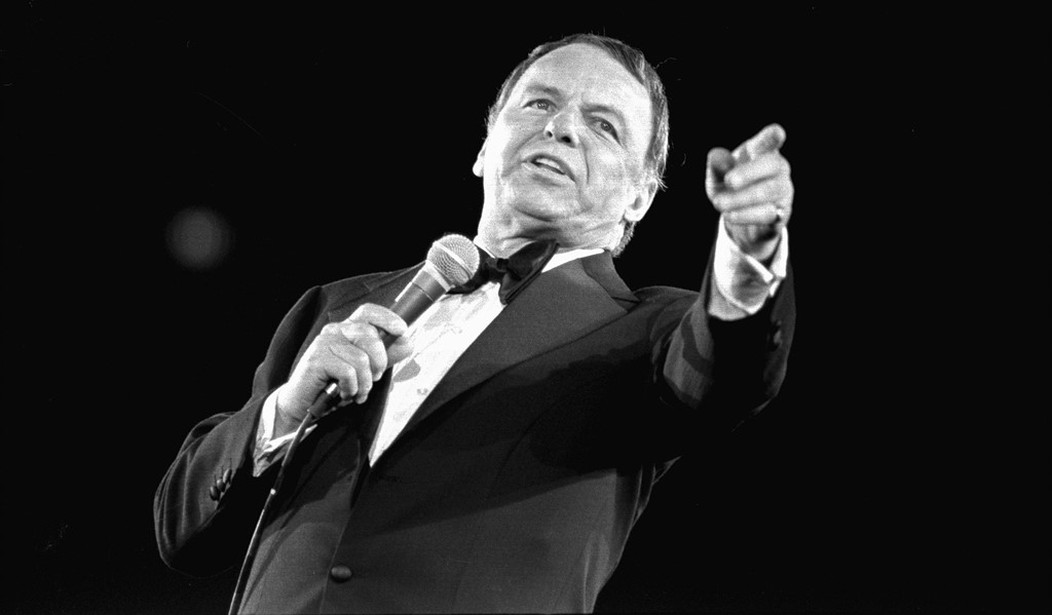"Why didn't this album sell? Why did the critics hate it? Is there something wrong with me?"
These are the questions that have haunted every music-lover at one time or another, when some new album failed to launch, or after discovering an older album that even the critics seem to have forgotten about.
But I have an entire website to play with (and a very understanding managing editor) so it occurred to me that this would be the perfect place to share some of those hidden treasures that either might have not been appreciated in their own time, or been quickly forgotten once their time had passed.
Since Frank Sinatra invented the album as the world soon came to know it — with 1954's "In The Wee Small Hours" — I thought I'd kick off my new Underappreciated Albums series with one from Frank that doesn't seem to get the respect I feel it deserves.
The year was 1962 and the album was "Sinatra And Swingin' Brass." I hit that one up on AllMusic over the weekend, looking for the writing credits on "Tangerine." I was pretty sure it was a Johnny Mercer lyric but I couldn't remember who wrote the music. Victor Schertzinger, as it turned out.
But imagine my shock to see that the AllMusic rating was a dismal 2.5 out of five stars. It doesn't even rank in the Top 50 of Sinatra's album sales, even though it's in my personal Top Five.
Sure, "Swingin' Brass" lacks the pathos of "In The Wee Small Hours" or the tortured longing Sinatra delivered on every track of 1960's "Nice 'N' Easy." But it wasn't meant to.
To borrow a line from Michael Lewis's 1989 Wall Street exposé, "Liar's Poker," this is the "big, swinging dick" of Sinatra albums — but without the disdain Lewis was heaping on Salomon Brothers traders.
Sinatra opens with Mercer's schadenfreudelicious "Goody Goody," accompanied by big, swinging horns.
This is not the Frank who, on "In The Wee Small Hours," exposed the shredded heart that Ava Gardner had left him with. This is not lonely, drunk Frank, asking you to pull up a barstool and wallow in misery with him. This is cocksure Frank, smiling with a Jack Daniels-on-the-rocks in his hand, gloriously and loudly toasting the heartbreak of the woman who had once broken his heart.
Hurray and hallelujah, you had it comin' to ya
Goody goody for him, goody, goody for me
And I hope you're satisfied you rascal, you
"A Johnny Mercer lyric," Sinatra once said, "is all the wit you wish you had and all the love you ever lost." And in this performance of "Goody, Goody," it's all the joy you ever felt when your ex finally got what they deserved. And kudos to arranger/conductor Neal Hefti (not one of Frank's regular collaborators and perhaps most famous for writing the Adam West TV show "Batman" theme) for grokking the brash sound Frank required from all that big, swinging brass.
And so the tone is set for the entire, rollicking album which — talk about brimming with confidence — Chris Queen informs me was recorded in just two days.
For the second track, Sinatra chose the Gerwshin brothers' "They Can't Take That Away from Me," even though he'd recorded it just nine years prior with a Nelson Riddle arrangement on "Songs For Young Lovers."
While I love both versions, these are completely different takes. In 1953, Sinatra sounded like a young fool convinced that he could never be separated from his love. In 1962, he sounds like a man who would happily kick your ass just for thinking about trying.
If there's a weak spot on this album (but there isn't), it's in a small choice made in presenting Cole Porter's scandalous lyric to "I Get A Kick Out Of You" from the musical "Anything Goes." Here's the second verse as Sinatra recorded it in '53:
Some they may go for cocaine
I'm sure that if
I took even one sniff
That would bore me terrifically, too
Yet, I get a kick out of you
Hollywood's 1934 Hays production code forbade any explicit drug references, so the first line of the verse was re-written to "Some like the perfume from Spain..." for the movie version of "Anything Goes." While Sinatra first recorded it with the cocaine intact, he switched it up to the Porter-approved "perfume from Spain" for various live performances, including his jazzy "Sextet" concert album recorded in Paris.
For "Swingin' Brass," Sintra switched it up again with, "Some like the be-bop refrain/I'm sure that if I heard even one riff..."
It's still a ballsy line in a ballsy performance, even without Porter's intended naughtiness.
It's no coincidence that Sinatra recorded "Swingin' Brass" in 1962 when America was at the confident height of its — our — dizzying power. In every possible way, this country stood astride the globe. And Sinatra took all that and compressed it into 30 breezy minutes of song.
"Swingin' Brass" was just an album, sure, but it was also the sound of America in 1962 before the Kennedy assassination and Vietnam exposed the rot in our institutions. We were the big, swinging dick of a superpower — and if we broke a few hearts along the way... sorry, toots, but we both had a good time.
Sinatra would go on to perform and record for another 32 years, but he never again sounded this big and this brash for the length of an entire album. We could use that sound again today, but I'm sorry to report that today's America would have even less clue what to do with that much big, swinging dick than audiences did in 1962.
Also for Our VIPs: UK 'on the Brink' of Shooting Back in a War They (and We) Are Already In










